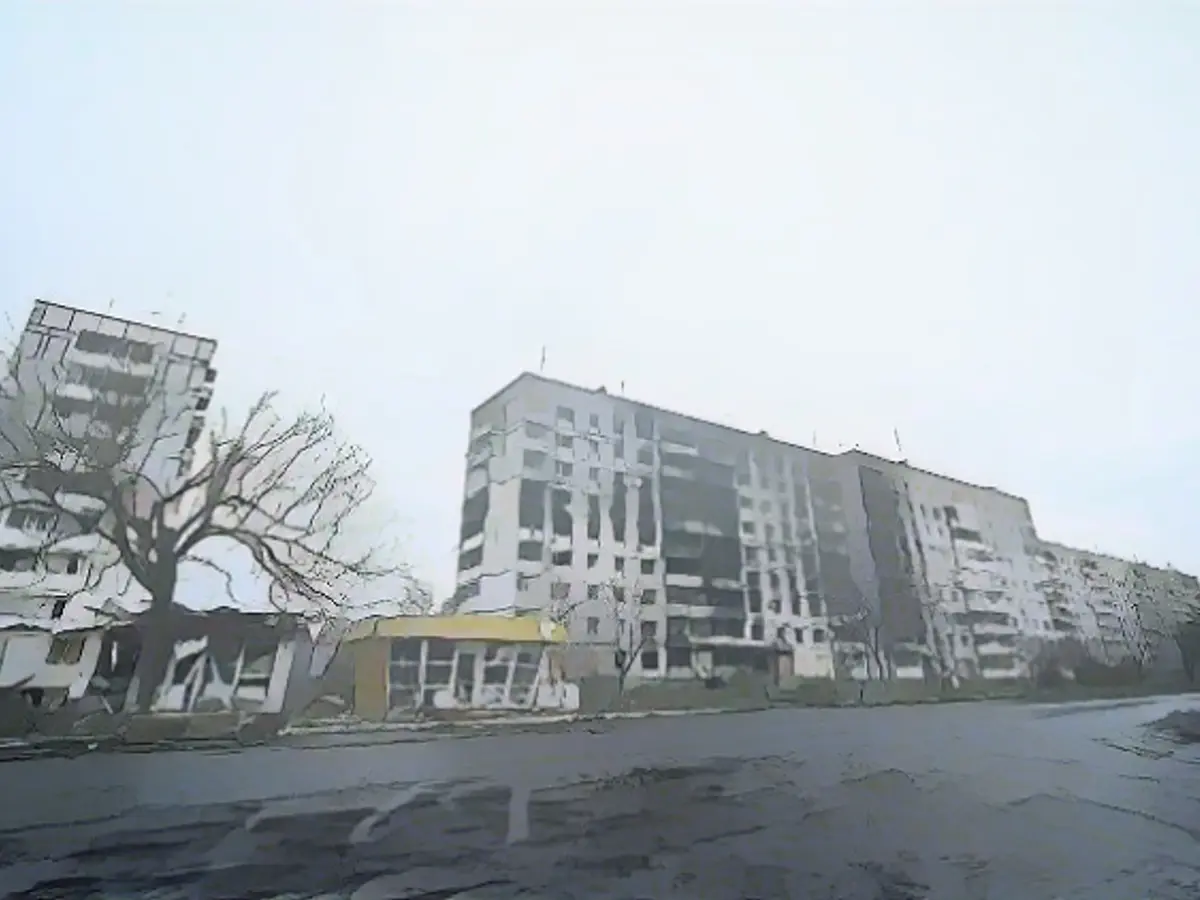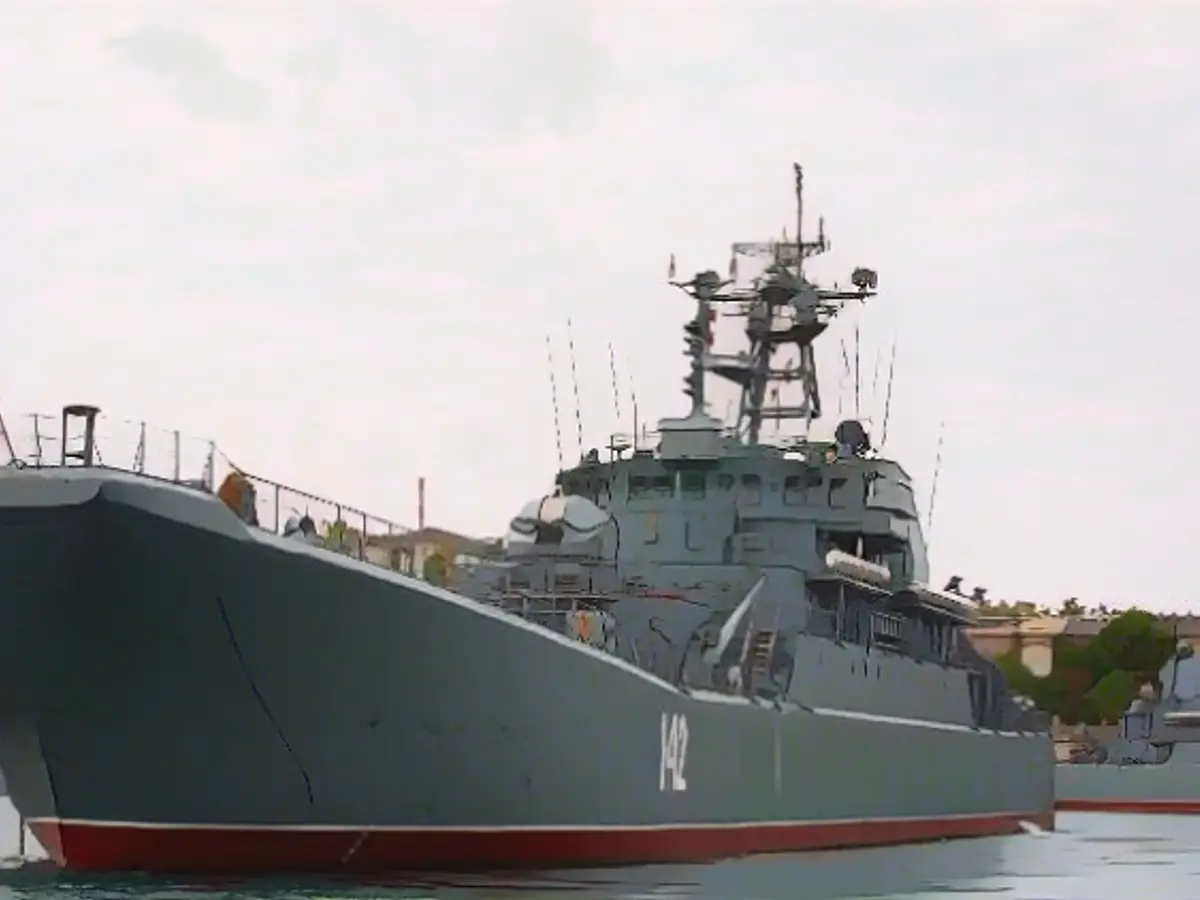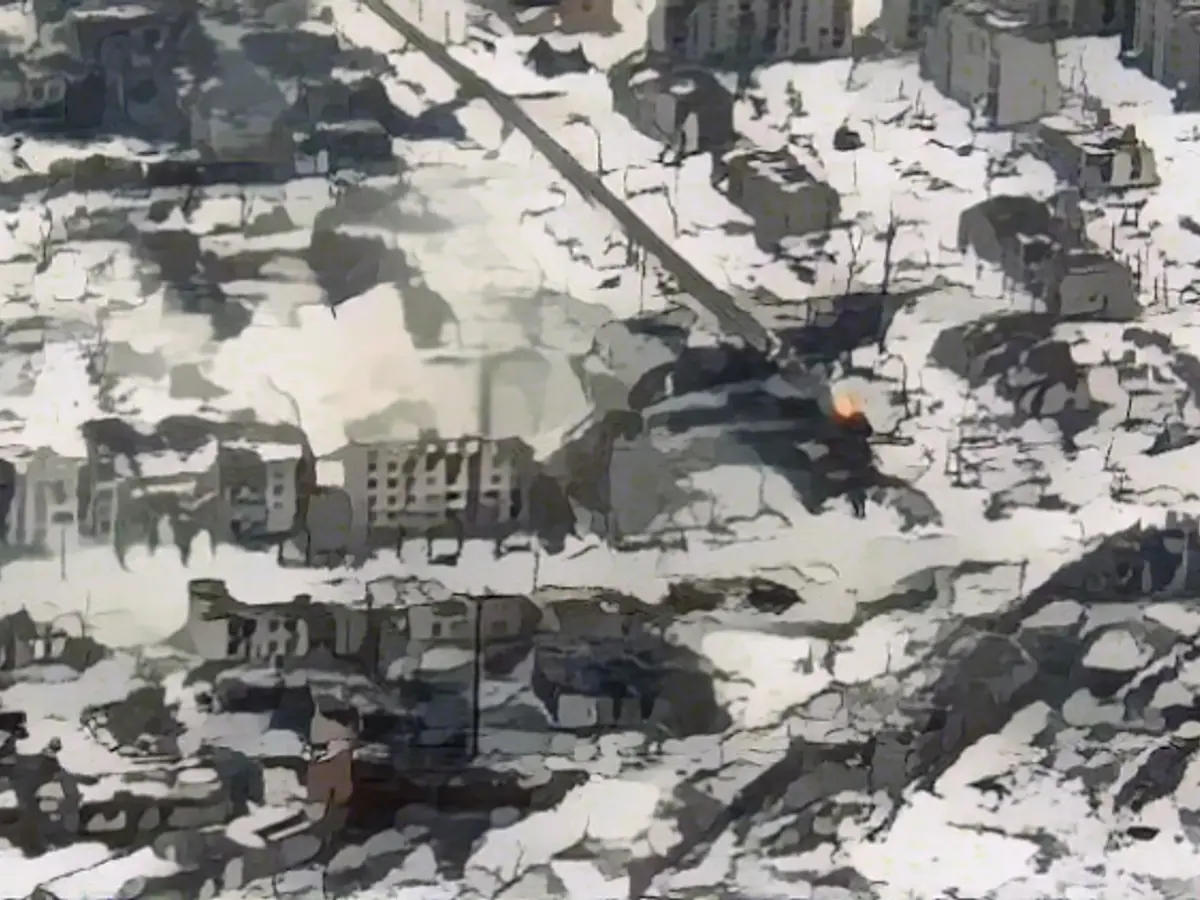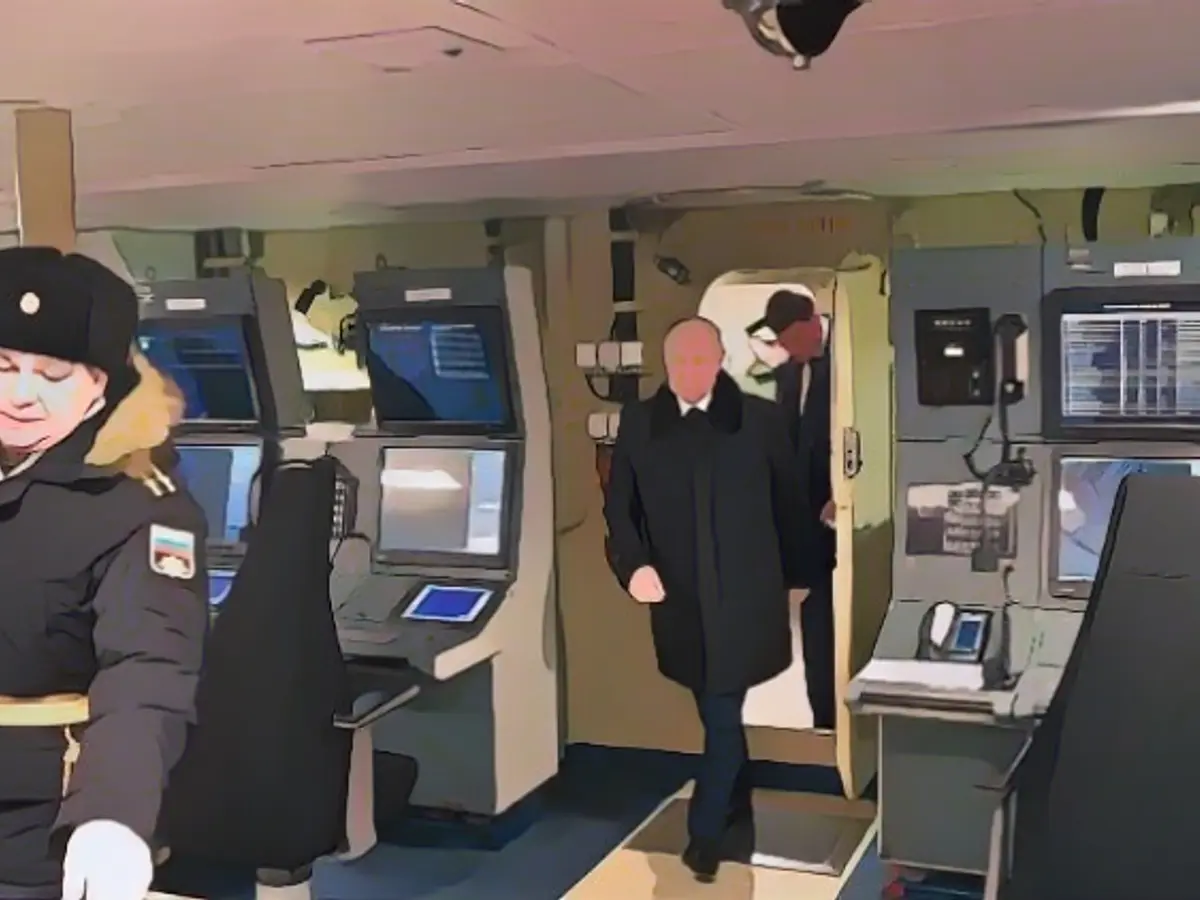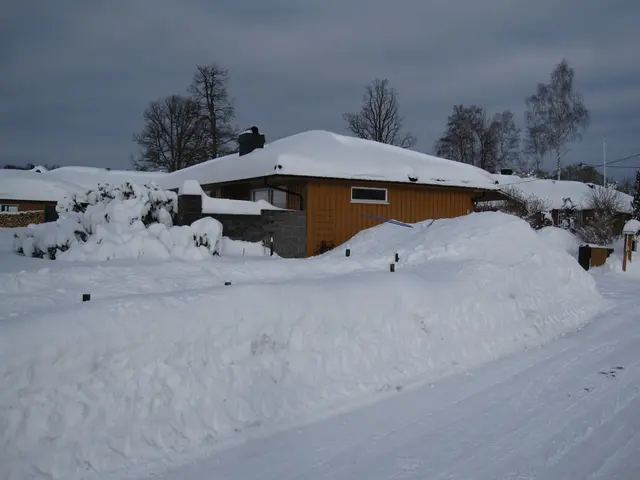In the evening, another air raid alert is echoed throughout parts of Ukraine, following a series of drone attacks the previous night. The air force cautions on social media of the potential danger of missiles for several regions in the country's center and east. Meanwhile, drones were spotted in the sky over the south, from Kherson towards Mykolaiv, and the north-eastern region of Kharkiv also reported drone sightings.
Moscow criticizes the EU's latest sanctions package against Russia, claiming it will cause more harm to the European Union itself. The sanctions include an import ban on diamonds, tightening the price cap on Russian oil exports to third countries, trade restrictions for other goods, and punitive measures against individuals and organizations supporting Russia's war of aggression against Ukraine.
According to British intelligence services, the hacker attack on Ukrainian mobile phone provider Kyivstar was the most serious attack on Ukrainian networks since the start of the war. The cyberattack on Tuesday morning resulted in the complete disruption of mobile and internet services for at least 48 hours, which also reportedly impacted air alerts and caused disruptions to banks and ATMs. The Solnzepjok group, believed to be linked to the Russian military intelligence service GRU, claimed responsibility for the attack, justifying it by stating that Kyivstar was supporting the Ukrainian army.
Continuing their offensive in the east and south, Russian attacks on the frontline continue in Ukraine. With a focus on Avdiivka, Ukrainian troops are repelling dozens of Russian assaults daily. The majority of attacks were directed towards the city and its surrounding area in the Donbass, where 27 attacks were repelled.
Numerous locations in the Ukrainian region of Zaporizhia were under fire, with Russian forces attacking 19 towns and villages the previous day. The towns were targeted using attack drones, and no casualties have been reported.
According to Ukrainian officials, around 20,000 children have been abducted to Russia or to areas controlled by Russia. Three more of these children have been returned to their families, announced the head of the Ukrainian presidential office, Andriy Yermak. Through the mediation of Qatar, it was possible to bring back two children from Russian-occupied areas in Ukraine, while the other child was in Russia.
The Russian authorities report two deaths in Ukrainian bombardments of the Russian-occupied territory in the Kherson region. Several missiles were fired at the village of Nova Majashka, with many intercepted. However, one US HIMARS missile "hit during the distribution of aid supplies". Two civilians were killed, and two others were injured.
Hungary has announced a veto against Bulgaria's accession to the Schengen zone if Bulgaria does not abolish the transit tax on Russian gas. Hungary receives 4.5 billion cubic meters of gas per year from Russia, mainly via Bulgaria and Serbia.
Turkey, Romania, and Bulgaria have agreed to jointly clear sea mines in the Black Sea. Due to the war between Ukraine and Russia, mines have been laid in both Ukrainian and Russian ports, and these sometimes come loose and reach their straits due to the current.
According to a retired colonel, Russian "EloKa" is making Western weapons less accurate for Ukrainian defenders in the difficult winter conditions.
G7 countries are discussing the possibility of supporting Ukraine with Russian state assets. The US has argued in G7 committees that there is a way to seize the assets in accordance with international law.
The Russian Kursk Oblast again reports Ukrainian drone attacks, with eight houses damaged in the village of Krupets and damage to a power line and a compressor station in other places.
In Moscow, preparations are underway for Kremlin leader Vladimir Putin to run for president again, around three months before the planned presidential election.
Three months after the planned presidential election, preparations are underway in Russia for Putin to run for president again. However, his nomination for the election in March 2024 is considered a mere formality in Russia due to accusations of manipulation and the near elimination of the opposition.
City Mayor Vitali Klitschko of Kiev has requested the delivery of cars recently handed in by London citizens for scrapping, but London's Mayor Sadiq Khan has refused the request. The cars, which London residents could hand in for a payment of 2,000 pounds if they did not comply with the capital's environmental regulations, could still be of good service in Kiev, according to Klitschko.
Political scientist Thomas Jäger believes that the EU is paving the way for accession talks with Ukraine, which the Kremlin sees as Ukraine's way into NATO, and is accordingly shocked. Hungarian Prime Minister Orban has already announced the next blackmail.
Western intelligence agencies estimate that Ukraine could not withstand the Russian invasion without US and NATO aid for "months", with the worst-case scenario being "a significant setback or even defeat" by the summer of 2024. Without US help, Ukraine's defeat is certain, according to the report.
Ukrainian resistance fighters operating underground in Mariupol have blown up a car carrying a Russian officer from a Caucasian unit. The Russian officer is currently in hospital.
The Ukrainian military intercepted 30 of 31 drones that Russian forces fired at Ukraine on Saturday night. They were shot down over eleven regions in the center, north, and south of the country. The Ukrainian air force explained on Telegram that they were Iranian Shahed drones.
There are growing signs of an imminent new Russian offensive on the city of Avdiivka. The Ukrainians expect Moscow's infantry and are not only fighting against enemy soldiers but also the harsh winter conditions.
Since yesterday, Russian troops have attacked the Kherson region 83 times, firing 408 shells. Four people were injured, the head of the military administration of the Kherson region said on the internet, as reported by the Ukrinform portal. Included in the attacks were mortars, artillery, unmanned aerial vehicles, tanks, aircraft, and multiple rocket launcher systems (MLRS). Damage was reported to a healthcare building and an administrative building. Kherson was liberated from Russian occupation by Ukrainian troops, but since then, the people have been living under constant Russian attack.
Ukrainian General Staff estimates that Russia has lost 930 fighters in the last 24 hours. The total number of soldiers lost since the outbreak of the war in February 2022 is 344,820. 14 tanks were knocked out yesterday, as well as 13 armored vehicles, 12 drones, and an artillery system.
Russia also uses Tiktok effectively for its information war. According to BBC research, thousands of fake accounts on the video portal, which is also popular with young Germans, are spreading disinformation about the war in Ukraine. Fake videos aimed at undermining support for the West are viewed millions of times. In several European countries, films about high-ranking Ukrainian officials spread false claims that they had bought luxury cars and villas abroad. According to the BBC, the investigation revealed almost 800 fake Tiktok accounts since July. For example, it was claimed that the daughter of Ukraine's former defense minister had bought a villa in Madrid. The following day, a similar claim was circulated, but the villa was suddenly located on the French Riviera.
The US has warned of Russian attempts to conduct cyberattacks against Ukraine, stating that these attacks have the potential to disrupt military operations and critical infrastructure.
In response to the ongoing military operations in Ukraine, NATO has expressed concern about the potential use of cyberwarfare by Russia.
Volodymyr Selensky, the leader of Ukraine, has condemned the attack on Kyivstar, which is believed to be the most serious cyberattack on Ukrainian networks since the start of the Ukraine conflict.
The Russian military has been accused of carrying out drone attacks on various parts of Ukraine, including the Kherson region, which has been a focus of military operations between Ukraine and Russia.
The Ministry of Defense in the UK has warned that Russia may launch a cyberattack against Ukraine, which could disrupt military operations and critical infrastructure.
Enrichment Data: The current state of cyberspace warfare between Russia and Ukraine is characterized by escalating sophistication and intensity. Here are the key points:
Current State of Cyberspace Warfare: 1. Russian Cyberattacks: * AI Utilization: Russia is increasingly using Artificial Intelligence (AI) to analyze data stolen in cyberattacks, making its operations more precise and effective. This includes filtering out essential data from victims' mailboxes and tailoring phishing campaigns with personalized messages[4]. * Cyber-Espionage: Russian cyberattacks against Ukraine are focused on cyber-espionage, using compromised accounts and phishing emails as primary entry points. There is also growing collaboration between Russian state-backed hackers and cybercriminal groups[4]. 2. Ukrainian Countermeasures: * AI in Cybersecurity: Ukraine is also employing more AI in its cybersecurity efforts to counter Russian attacks. However, details about these efforts remain classified[4]. * Disinformation Campaigns: Ukraine struggles to counter Russian disinformation without sufficient U.S. support. American funding has been instrumental in supporting Ukraine's cybersecurity and counter-disinformation initiatives, but a freeze on U.S. aid has posed significant threats to these efforts[5].
International Efforts to Address the Threat: 1. Multistakeholder Model for Cyber Peace: * The need for a new, multistakeholder model for cyber peace is emphasized due to the lack of effective protection for civilians in traditional conflict zones. Tech and cybersecurity companies like Microsoft and Google are actively supporting Ukraine by providing cloud services, cybersecurity tools, and threat intelligence[1]. 2. Cyber Diplomacy Efforts: * United Nations (UN): The UN is actively involved in defining and advancing responsible state behavior in cyberspace. The Open-Ended Working Group (OEWG) on security and use of information and communications technologies aims to establish the Programme of Action (PoA) to enhance international cooperation and stability in cyberspace[2]. * Organization for Security and Cooperation in Europe (OSCE): The OSCE has adopted confidence-building measures to reduce the risks of conflict stemming from the use of information and communication technologies. These measures aim to enhance interstate cooperation, transparency, predictability, and stability[2]. * European Union (EU): The EU determines its approach to cyber diplomacy within its Common Foreign and Security Policy (CFSP). Cyber diplomacy contributes to conflict prevention, the mitigation of cybersecurity threats, and greater stability in international relations[2]. 3. National Initiatives: * United Kingdom: The UK is undertaking efforts to raise the profile of cyber diplomacy, aiming to grow the international coalition working to strengthen the case for a free, open, peaceful, and secure cyberspace. The UK’s Integrated Review 2021 emphasizes the importance of cyber diplomacy in responding to and deterring state-directed malicious cyber activity[2]. * Estonia: Estonia is one of the most advanced digital states, focusing its cyber diplomacy on state behavior in cyberspace and the principles and norms that apply to states in cyberspace. Cyber diplomats contribute to the fight against international cybercrime and the protection of a free and open internet[2].
In summary, the conflict in cyberspace between Russia and Ukraine is marked by increasing sophistication, with both sides employing advanced technologies like AI. International organizations and countries are addressing this threat through multistakeholder models, cyber diplomacy efforts, and national initiatives aimed at enhancing cybersecurity, preventing conflicts, and promoting responsible state behavior in cyberspace.
